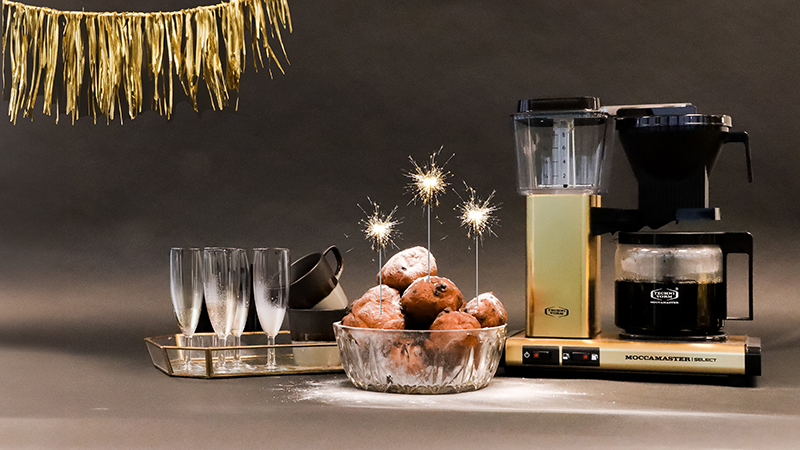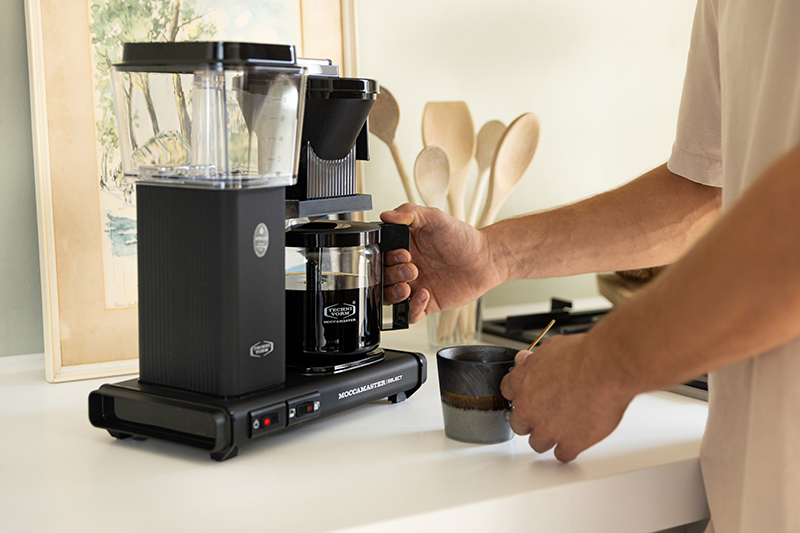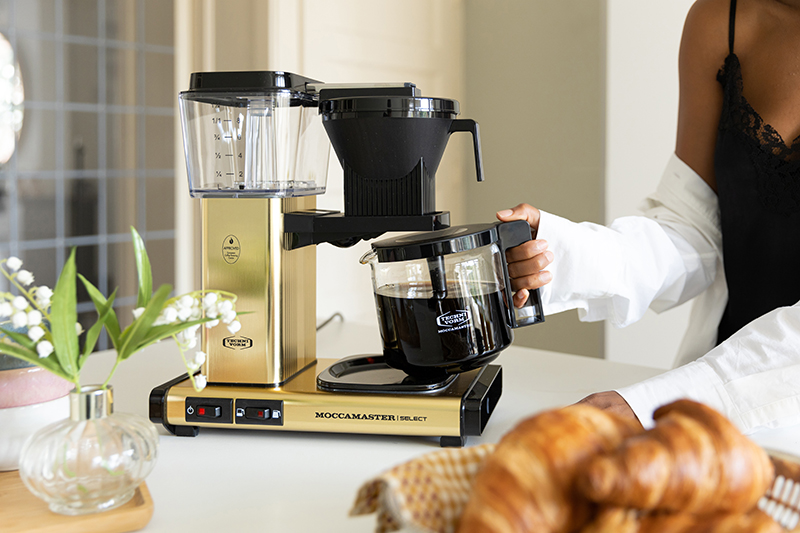
The new year is just around the corner and with it the thoughts about good resolutions start: more exercise, less alcohol, more vegetables and less/no coffee are the classics. But wait: why does the topic of reducing coffee regularly end up on this list? Is coffee actually bad and unhealthy? Spoiler: It isn’t if done right.
Coffee is not inherently unhealthy
Numerous studies[1] show that moderate coffee consumption can even have positive effects on health. Filter coffee in particular is often underestimated because it filters out cafestol oil, which can increase cholesterol levels.
According to a study[2] by US doctor and epidemiologist Walter C. Willett of the Harvard School of Medicine, filter coffee not only lowers cholesterol levels, but also contains anti-inflammatory antioxidants. In addition, it supplies your organism with nutrients such as magnesium, potassium and vitamin B3, which have a positive influence on fat metabolism and intestinal flora. A lower risk of Parkinson’s, diabetes, Alzheimer’s and depression is suspected. According to the study, up to five cups a day are safe.
It’s the balance that counts
As with all things in life, balance is important when enjoying coffee. Balanced coffee consumption is important to enjoy the benefits of caffeine without experiencing negative effects. Since up to 5 cups of filter coffee per day are considered healthy, it is even more important to really enjoy the ritual of drinking coffee and to prioritize quality over quantity. For example, by choosing a good coffee filter. But which filters are recommended? Rob van Cooten, Chief Marketing & Sales at Moccamaster knows: “A white filter is always a good option. The bleached filter is not only tasteless, but also filters unwanted oils out of the coffee. The filters are bleached with natural oxygen and are therefore harmless to people and the environment.”

The path to conscious coffee enjoyment
Instead of prematurely demonizing coffee, the New Year could be the perfect time to establish a healthy approach to it. For example, by switching to a filter coffee machine and thus switching to healthier coffee. By the way, you also protect the environment; filter coffee is the most sustainable coffee you can drink. Especially if the machine is produced as sustainably as possible, like Moccamaster. “Our machines are designed to last a lifetime. They are made in the Netherlands and are very easy to repair,” says Rob van Cooten.
Coffee dates with friends and family
Small coffee dates can be a great way to take advantage of the social aspect of coffee. Whether with friends, family or a partner, drinking a cup together promotes connection and relaxation. Social interactions have a positive impact on mental well-being, making coffee dates a beneficial addition to one’s lifestyle.
Finally, a few tips for perfect coffee consumption:
If you have stomach problems: choose coffee with a lower roast level and have a little breakfast before coffee.
For sleep problems: The caffeine works in the body for up to six hours. So if you have trouble falling asleep, you should make sure not to drink coffee at least six hours before your target bedtime.
And the most important point last: enjoy the coffee. In peace. Without distraction. The conscious use of coffee can not only positively influence the sense of taste, but also the attitude towards drinking coffee.
[1] Noordzij, M., Uiterwaal, C. S., Arends, L. R., Kok, F. J., Grobbee, D. E., & Geleijnse, J. M. (2005). Blood pressure response to chronic intake of coffee and caffeine: a meta-analysis of randomized controlled trials. Journal of hypertension, 23(5), 921–928. https://doi.org/10.1097/01.
[2] van Dam, R. M., Willett, W. C., Manson, J. E., & Hu, F. B. (2006). Coffee, caffeine, and risk of type 2 diabetes: a prospective cohort study in younger and middle-aged U.S. women. Diabetes care, 29(2), 398–403. https://doi.org/10.2337/


